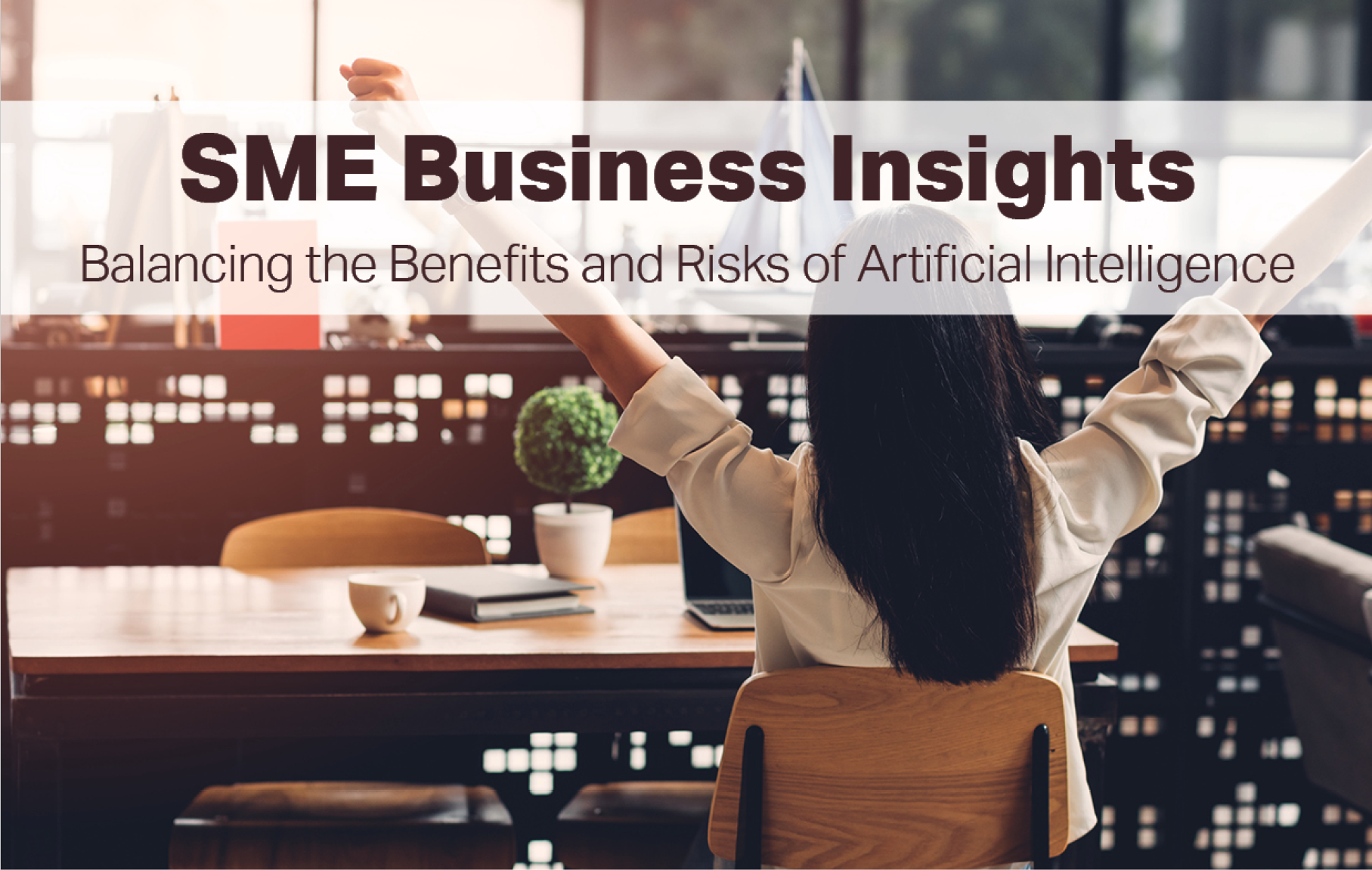
Artificial intelligence (AI) is rapidly transforming how small- and medium-sized enterprises (SMEs) operate, offering powerful tools to improve efficiency, strengthen security and enhance customer engagement.
To adopt AI effectively, SME business leaders must understand both its strategic advantages and potential pitfalls to make informed decisions that align with long-term objectives.
This article explores the key benefits and risks of AI for SMEs and offers guidance on using this technology responsibly.
The Key Benefits of AI
Increased productivity was identified as the most important benefit of AI by 35% of UK employers, according to a YouGov survey commissioned by the Advisory, Conciliation and Arbitration Service.
Still, it’s vital to scrutinise AI risks to minimise exposures and ensure responsible implementation.
AI offers a range of practical applications that can help SMEs operate more efficiently, securely and strategically, including:
- Solving problems before they happen—AI-powered tools help SMEs anticipate and address issues early. For example, route optimisation software can adjust delivery plans in real time based on traffic, weather or vehicle capacity. Similarly, inventory planning tools can detect stock gaps and forecast demand to prevent shortages.
- Automating routine tasks—AI tools can streamline operations by performing repetitive tasks such as generating invoices and responding to customer inquiries, freeing up time for high-value activities.
- Enhancing security—AI can detect threats, identify vulnerabilities and respond to suspicious activity faster than manual systems, helping SMEs prevent cyber-attacks before they escalate.
- Analysing data—AI analytic tools can quickly examine large volumes of structured and unstructured business data to uncover trends, inefficiencies and growth opportunities. These insights can help SMEs make informed decisions, reduce costs and identify new revenue streams.
- Creating and managing content—AI can generate product descriptions, write and schedule social media posts, and draft responses to online reviews to support marketing and brand engagement efforts.
- Improving customer service—AI-powered chatbots can answer common questions, assist with orders and provide 24/7 support, enhancing the customer experience without increasing staffing costs.
The Risks Associated With AI Use
Understanding the potential risks of AI is critical for SMEs to safeguard operations, uphold stakeholder trust and support sound decision-making. SMEs should be aware of the following limitations of AI:
- AI depends on data that may be flawed or outdated. AI systems are only as good as the data they use. Inaccurate, biased or incomplete data can lead to poor decisions and unreliable insights.
- AI can increase cyber-security vulnerabilities. AI integration can expand an organisation’s attack surface and introduce new entry points for cyber-attacks. Threat actors may use generative tools to craft phishing emails, deepfakes or automated threats, increasing the risk of breaches.
- AI can raise ethical and privacy concerns. Using AI to collect, store or analyse personal or sensitive data without clear consent or proper safeguards can violate privacy laws, reinforce bias and damage customer trust.
- AI adoption can outpace internal capabilities. Limited in-house expertise and minimal resources within SMEs can hinder effective AI implementation and increase the risk of mismanagement.
- Overreliance on AI can weaken human oversight. Overreliance on AI can lead to unchecked decisions, missed errors and diminished accountability in complex situations.
Using AI Responsibly
Responsible adoption is essential as AI becomes increasingly embedded in SME operations. SMEs must maintain transparency in how AI tools are used, apply ethical standards to data use and collection, and ensure oversight of automated decisions. By establishing clear governance frameworks, designating accountability for AI oversight and investing in staff training, these organisations can help mitigate operational, legal and reputational risks.
SMEs should also review their insurance policies—such as cyber insurance, commercial crime insurance and professional indemnity insurance—to ensure they provide adequate cover for AI-related exposures. Contact Philip Gibbs Insurance Brokers to find out more.


